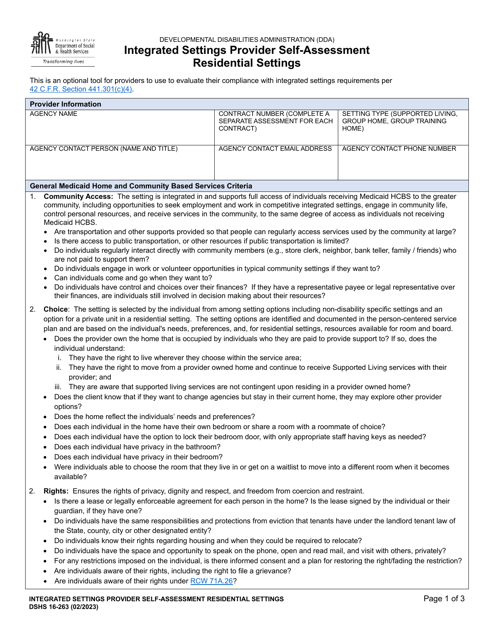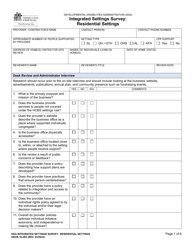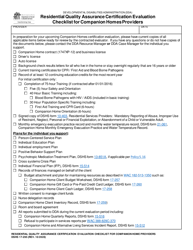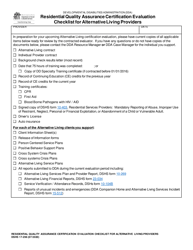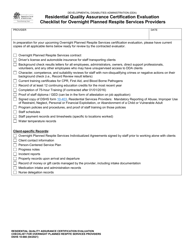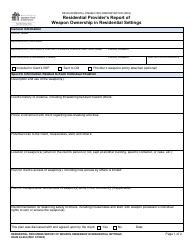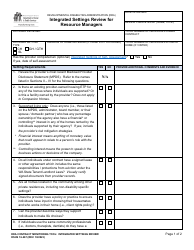DSHS Form 16-263 Integrated Settings Provider Self-assessment Residential Settings - Washington
What Is DSHS Form 16-263?
This is a legal form that was released by the Washington State Department of Social and Health Services - a government authority operating within Washington. As of today, no separate filing guidelines for the form are provided by the issuing department.
FAQ
Q: What is DSHS Form 16-263?
A: DSHS Form 16-263 is a self-assessment form for residential settings in Washington.
Q: What is the purpose of DSHS Form 16-263?
A: The purpose of DSHS Form 16-263 is to assess and ensure compliance with integrated settings requirements for residential settings.
Q: Who is required to complete DSHS Form 16-263?
A: Residential settings in Washington are required to complete DSHS Form 16-263.
Q: What are integrated settings?
A: Integrated settings refer to residential settings that provide individuals with disabilities the opportunity to live, work, and participate in the community.
Q: What does the self-assessment involve?
A: The self-assessment on DSHS Form 16-263 involves answering questions about various aspects of the residential setting, such as accessibility, autonomy, community integration, and person-centered planning.
Q: How often should DSHS Form 16-263 be completed?
A: DSHS Form 16-263 should be completed annually or as required by the Department of Social and Health Services.
Q: Is there a fee for submitting DSHS Form 16-263?
A: No, there is no fee for submitting DSHS Form 16-263.
Q: What happens after completing DSHS Form 16-263?
A: After completing DSHS Form 16-263, the residential setting may be subject to a compliance review by DSHS.
Q: Who should I contact for further questions about DSHS Form 16-263?
A: For further questions about DSHS Form 16-263, you can contact the Department of Social and Health Services (DSHS) or your local DSHS office.
Form Details:
- Released on February 1, 2023;
- The latest edition provided by the Washington State Department of Social and Health Services;
- Easy to use and ready to print;
- Quick to customize;
- Compatible with most PDF-viewing applications;
- Fill out the form in our online filing application.
Download a printable version of DSHS Form 16-263 by clicking the link below or browse more documents and templates provided by the Washington State Department of Social and Health Services.
